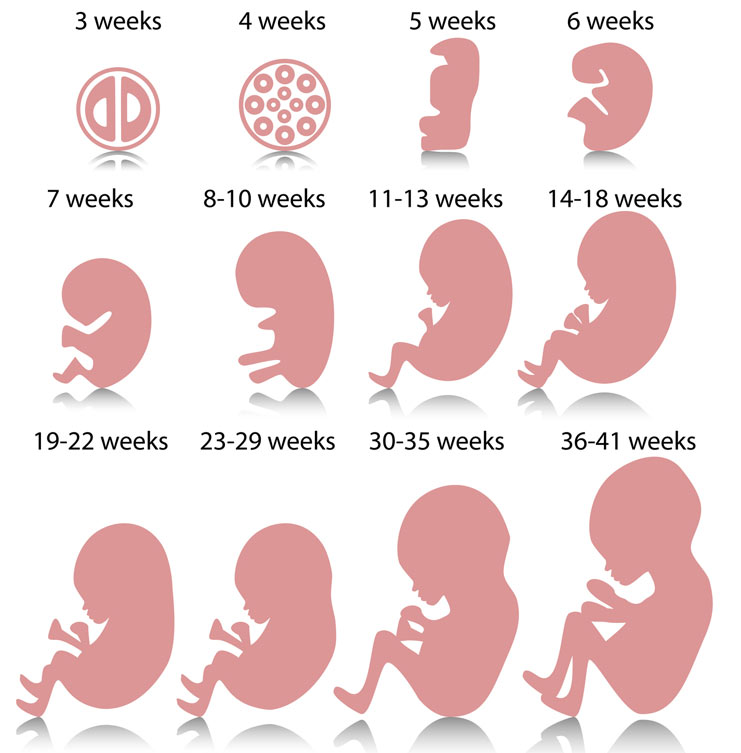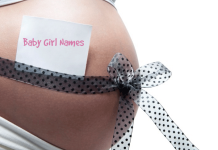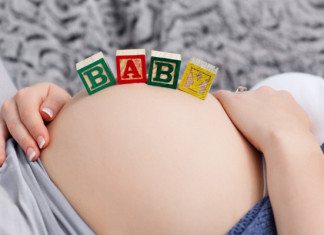
Having a baby and starting a family can be one of the most exciting moments in your life. Babies are so precious and so adorable that you probably can’t wait for him or her to arrive already! However, finding out that you are pregnant can be quite scary especially for first time parents since you have no clue of where to begin. This article will take you through that wonderful journey and inform you of the pregnancy symptoms week by week.
So you just missed your period and the pregnancy test confirms that you are indeed expecting. How wonderful! Every pregnancy is unique but the symptoms are generally the same. Some women will experience all the symptoms while others will not experience some. You are bound to have so many questions in regards to motherhood as it is an incredible journey that’s why below is a compiled guide of what you should expect.

Common Pregnancy Symptoms Week By Week
You will want to know all the pregnancy symptoms week by week. Pregnancy begins at conception, that is, when a fertilized egg implants in the uterus. It spans for a period of nine months which is equivalent to nine months. Yes it may seem like a long time but that is the period in which your baby will need to be formed and grow in you so as to be completely ready to come into the world.
Week 1: You have just begun your last period. After about two weeks, ovulation takes place. And during this time the egg travels to the uterus down the fallopian tube. This week is counted as the first week of pregnancy since your expected delivery date is calculated from the first day of your last menstrual period.
Week 2: In this week, the uterine lining is developing. This is what will nourish the baby. The follicle stimulating hormone is secreted by your body whose work is to stimulate the egg to mature. If a woman has unprotected sex during this time, she is most likely to get pregnant since the sperm will fertilize the egg. You will however not see any changes in your body just yet.
Week 3: You may not know it at this stage but your baby is developing at a very fast rate. There is cell division taking place such that when it reaches the uterus it looks like a tiny ball which is referred to as a morula. It fills up with fluid and it is known as a blastocyst which then attaches itself to the lining of the uterusna process known as implantation.
Week 4: This is the week when you are expecting your period but it does not take place. A hormone known as human chorionic gonadotrophin (hcg) which is the hormone that maintains the lining of the uterus where the baby is implanted. The most common symptoms of pregnancy during this week are fatigue, aching and tender breasts and nausea as well as slight cramping in some women. There may also be some spotting which is usually mistaken for the period while in real sense it is due to implantation.
Week 5: This is probably when you decide to take a home pregnancy test. Nausea and hunger will increase but these changes vary from woman to woman as well as in intensity. You may however want to avoid some certain foods.
Week 6: The baby’s first heartbeats have started. And the umbilical cord is developing. Morning sickness is now constantly occurring although it is not specifically limited to mornings only. Fatigue may be extreme too.
Week 7: Common symptoms include: weight gain, an increase in the size of the abdomen, varicose veins and development of a mucous plug at the opening of the cervix whose aim is to protect the uterus and it does this by sealing it.
Week 8: Your waistline is expanding but if it is your first pregnancy, you will probably not be showing. Schedule your first prenatal visit.
Week 9: Heartburns and indigestion are common as a result of pregnancy hormones. Your breasts may become fuller.
Week 10: Your blood volume increases up to about 50% such that veins in your tummy, breasts and legs are more noticeable. Morning sickness is on the decline though the hormones will probably make you moody.
Week 11: The baby is now called a fetus. Your appetite is better although nausea and certain smells are giving you a hard time.
Week 12: Headaches and feeling lightheaded is common. The uterus also shifts upwards and outwards meaning less frequent trips to the bladder.
Week 13: This marks the beginning of the second trimester. Abdominal aches are what you will mostly experience.
Week 14: Constipation may be experienced at this stage. Your areolas of the breasts become noticeably darker and increase in diameter.
Week 15: The uterus grows past your hipbones.
Week 16: Nosebleeds may occur due to the increase in blood volume and there is a continued stretch in your ligaments.
Week 17: The uterus in this week is between one and a half to two inches just below your navel. You should also be prepared to feel movements from your baby.
Week 18: You could be experiencing dizziness or feeling a little faint. This is normal unless it becomes too severe. An ultrasound can be able to determine your baby’s sex!
Week 19: During this week skin changes such as itchiness, dry and flaky skin are common. Invest in a good lotion. Stretch mark creams will help reduce the marks.
Week 20: Your uterus is now at the position where your navel is! There is a dark line between your navel and pubic hair but don’t fret, it will be gone after delivery. The baby’s movements become stronger.
Week 21: There is swelling in your ankles and feet. You may gain between 10 and 15 pounds.
Week 22: The uterus is about an inch above your navel. The weight gain is steadier now.
Week 23: Mood swings are rampant and you may see your abdomen move as your baby kicks, flips and flops.
Week 24: Your uterus is now about two inches above the navel.
Week 25: A new development during this week is shooting pains in your lower back as well as legs due to pressure on your back and pelvis by the uterus.
Week 26: You will experience what is called “Braxton Hicks” contractions. They are painless and will prepare you for labor.
Week 27: A common symptom pregnancy symptom is shortness of breath. The uterus is almost at your ribcage which is the reason why your lungs cannot expand fully.
Week 28: You will probably have difficulty sleeping, have hemorrhoids, itchy skin, swelling legs, varicose veins, heartburn and indigestion. This is the beginning of the last trimester.
Week 29: You may have mild swelling and varicose veins.
Week 30: Trouble sleeping will be common during this week.
Week 31: There is aching in the abdomen.
Week 32: During this week you will experience heartburns, indigestion and breathlessness.
Week 33: Changes that you will go through include gaining a pound and mild edema.
Week 34: Intensified Braxton Hicks contractions.
Week 35: Your uterus is about 15 centimeters above your belly button.
Week 36: Increased weight gain of about 30 pounds.
Week 37: Heavier vaginal discharge.
Week 38: There are irregular and painful false labor contractions.
Week 39: You may be feeling a bit clumsy and going to the toilet more often as the uterus is pushing on your bladder.
Week 40: Your baby will come any time now. You will probably be in labor for a while but that will all pay off when you see your baby’s face.
The guide above provides you with a clear explanation of pregnancy symptoms week by week. The pregnancy calculator is a very useful tool for you as well. You can take it easy and enjoy your road to motherhood with the information provided on pregnancy symptoms week by week.















